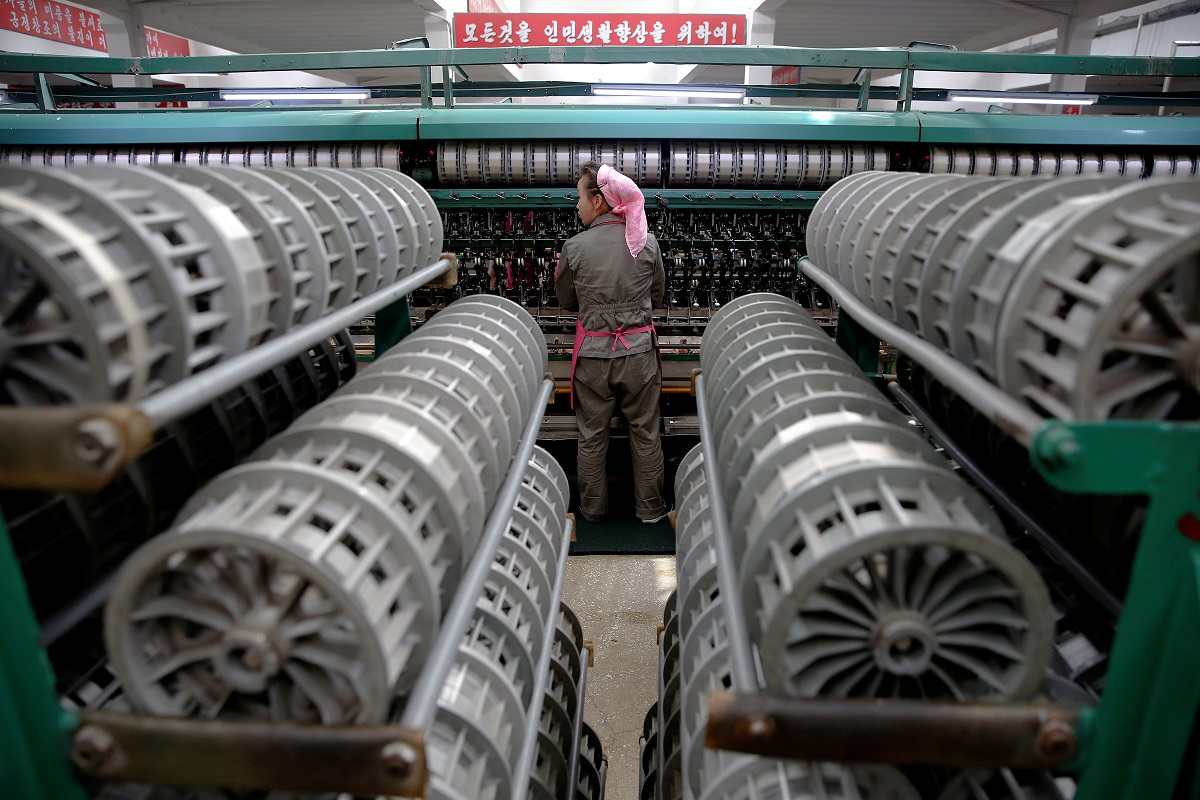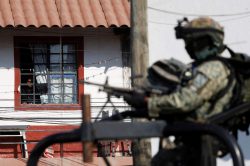
A woman works at the Kim Jong Suk Pyongyang textile mill during a government organised visit for foreign reporters in Pyongyang, North Korea May 9, 2016.
11:07 JST, January 19, 2023
SEOUL (Reuters) – North Korea’s parliament has outlined plans to normalize industrial production and meet its economic goals this year, despite the “worst-ever upheaval” amid the coronavirus pandemic in 2022, state media said on Thursday.
The reclusive country’s rubber-stamp parliament, the Supreme People’s Assembly, held a two-day meeting from Tuesday to discuss government budget, economic policy and personnel changes, the official KCNA news agency said.
South Korea’s central bank has said the North’s economy shrank in 2021 for a second straight year after suffering its biggest contraction in more than two decades the year before, hit by COVID-19 lockdowns and international sanctions over its weapons programs.
Leader Kim Jong Un did not join the meeting, but Kim Tok Hun, premier of the cabinet, reviewed last year’s work and laid out tasks this year for key industries.
The premier lauded the country for “successfully tackling the worst-ever upheaval since the founding of the country” amid the COVID-19 outbreak, despite “shortcomings” in implementing last year’s plans.
The cabinet aims to expedite the production of overall sectors and make 2023 “a year of great turn and change in the course of development” marking the 75th anniversary of the country’s foundation, Kim said.
“It will make sure that the economic indices and 12 major goals to be attained by all the sectors of the national economy are carried out without fail,” Kim said, according to KCNA.
He called for normalizing the production of metal factories and reinforcing iron mines and steel plants, and for operating chemical plants “at full capacity” to accelerate construction projects.
The country will also take “strong measures” to supply equipment, materials and funds to boost coal production, Kim said.
In another KCNA dispatch on budget deliberations, Finance Minister Ko Jong Bom said this year’s overall spending is expected to rise by 101.7% from last year, without specifying numbers.
Some 45% of the total expenditure will be allotted to promote the economy and the people’s livelihoods, while defense spending would take up 15.9%, about the same as last year, Ko said.
“The state budget for this year should be implemented without fail to financially support the work for bolstering up the country’s defense capability, developing the economy and improving the people’s standard of living,” Ko told the parliament.
Top Articles in News Services
-

Survey Shows False Election Info Perceived as True
-

Hong Kong Ex-Publisher Jimmy Lai’s Sentence Raises International Outcry as China Defends It
-

Japan’s Nikkei Stock Average Touches 58,000 as Yen, Jgbs Rally on Election Fallout (UPDATE 1)
-

Japan’s Nikkei Stock Average Falls as US-Iran Tensions Unsettle Investors (UPDATE 1)
-

Trump Names Former Federal Reserve Governor Warsh as the Next Fed Chair, Replacing Powell
JN ACCESS RANKING
-

Producer Behind Pop Group XG Arrested for Cocaine Possession
-

Japan PM Takaichi’s Cabinet Resigns en Masse
-

Man Infected with Measles Reportedly Dined at Restaurant in Tokyo Station
-

Israeli Ambassador to Japan Speaks about Japan’s Role in the Reconstruction of Gaza
-

Videos Plagiarized, Reposted with False Subtitles Claiming ‘Ryukyu Belongs to China’; Anti-China False Information Also Posted in Japan























